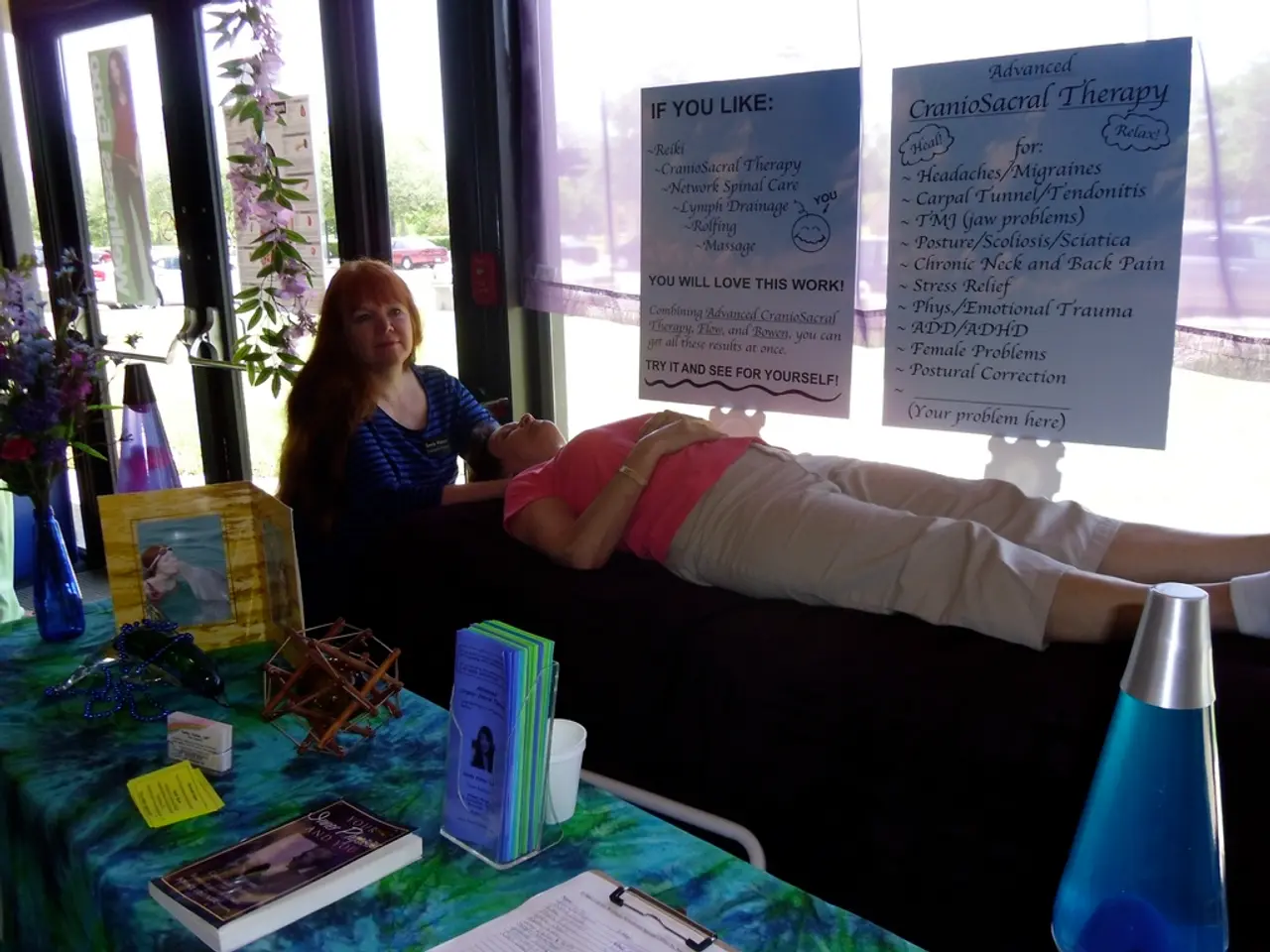Strategies for Calmness: 20 Methods and Suggestions
In today's fast-paced world, managing stress and promoting relaxation is more important than ever. Here's a guide that combines lifestyle adjustments, mindfulness practices, social support, and professional intervention to create a holistic stress management plan.
Daily Habits
Adopting certain daily habits can significantly improve your overall well-being.
- Schedule deliberate relaxation breaks daily, such as 15 minutes for tea, stretching, walks, or peaceful activities with no stress discussions.
- Say “no” to overcommitting; protect your time and avoid overwhelming obligations.
- Keep a gratitude journal by writing 2–3 things you’re grateful for each day to shift focus to positives and reduce stress.
- Maintain healthy eating habits emphasizing whole, nutritious foods (fruits, vegetables, whole grains, nuts, healthy fats) and stay hydrated.
- Prioritize sleep by aiming for 7–9 hours nightly with a consistent bedtime, screen-free time before bed, and a calming environment.
- Engage in regular light physical activity like walking, yoga, or dance for at least 30 minutes daily.
Mindfulness Practices
Incorporating mindfulness into your routine can help reduce mental overload and promote relaxation.
- Practice guided meditation or breathwork for about 10 minutes daily to calm the nervous system.
- Use progressive muscle relaxation (body scan technique) to release physical tension.
- Minimize multitasking to reduce mental overload and stress.
- Set boundaries around phone use to prevent constant distraction and encourage mindfulness.
- Incorporate mindfulness into daily activities to increase presence and counter distractions.
Social Activities
Social interactions can have a profound impact on mental health.
- Schedule supportive social interactions such as phone calls with loved ones during relaxation times to enhance emotional connection and reduce stress.
- Avoid social engagements that feel overwhelming, balancing social activity with restoration.
Professional Help Options
When stress becomes chronic or overwhelming, it may be time to seek professional help.
- Reach out to mental health professionals or therapists for personalized guidance on managing stress and creating coping plans.
- Utilize resources available through schools or community programs to access counseling and support before stress becomes unmanageable.
- Consider licensed therapists who can provide strategies, such as cognitive-behavioral techniques, to address stress triggers and emotional burnout.
Therapeutic Techniques
Various therapeutic techniques can significantly improve mental and physical well-being.
- Cognitive-Behavioral Therapy (CBT), mindfulness-based stress reduction (MBSR), and acceptance and commitment therapy (ACT) are all effective in managing stress.
- Cognitive restructuring is a technique used in cognitive-behavioral therapy to change negative thought patterns that contribute to anxiety and stress.
Self-Care and Recognition
While self-care strategies are crucial, it's important to recognise when they are not enough.
- Embracing relaxation is essential for preserving mental, emotional, and physical health, and discovering what genuinely resonates with you is key.
- Consulting a mental health professional may be needed when stress becomes chronic or overwhelming, impairing daily functioning.
Additional Strategies
- Listening to music or reading can be incredibly soothing for the mind, offering an escape into different worlds or stimulating memories and emotions.
- A digital detox can decrease anxiety, improve sleep quality, and increase the ability to focus by consciously limiting daily screen time and disconnecting from digital devices.
- Enhance productivity by incorporating creativity into your daily tasks, such as brainstorming new ideas or exploring innovative solutions for challenges.
- Pursue education-and-self-development opportunities in areas of personal interest, as ongoing learning can boost self-growth and motivation.
- Adopt effective time management techniques, such as prioritizing tasks based on importance, breaking down larger projects into smaller manageable tasks, and delegating non-essential responsibilities.
- Cultivate home-and-garden hobbies, like growing plants, decorating your living space, or engaging in DIY projects, to promote equanimity and self-expression.
- Develop a style that reflects your personality through fashion-and-beauty choices, expressing individuality while boosting self-esteem.
- Prepare and consume health-and-wellness meals, incorporating a variety of ingredients and flavors from food-and-drink sources to foster balance and well-being.
- Expand your horizons through travel experiences, immersing yourself in new cultures, scenic landscapes, and unfamiliar surroundings to foster personal growth and broaden perspectives.
- Nurture relationships by investing time and energy into maintaining connections with loved ones, colleagues, and friends, promoting mutual support and understanding.




